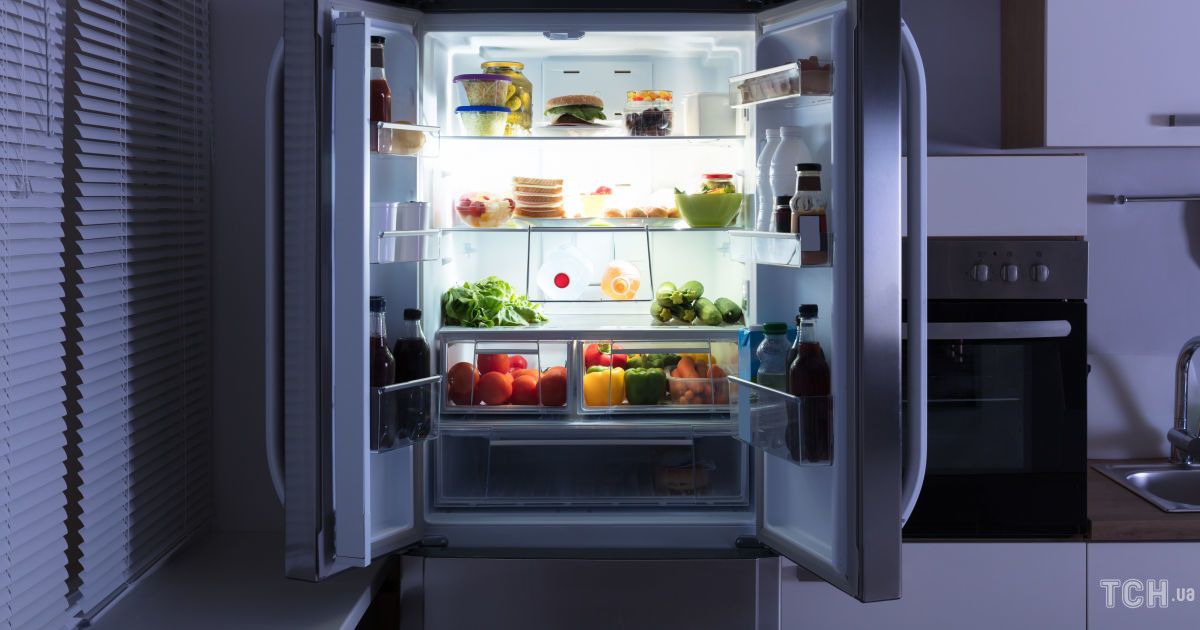If you're determined to lose weight and eat healthy, you should check the contents of your refrigerator.
You simply should not have access to junk and diet food.
Get rid of everything that can interfere with your diet, replace everything harmful with useful, and then the chances of success will increase dramatically.
To more thoroughly prepare for the diet, use the recommendations of Womans World, which publishes the advice of Dana White, a sports nutritionist.
Why do you need snacks?
Why are balanced snacks and meals so important?
They do three important things:
control blood sugar level fluctuations;
help to stay full longer;
provide nutrients.
The latter is key because if you're cutting out healthy foods, you may be missing out on vitamins, minerals, protein, fiber, and beneficial plant compounds like antioxidants.
Therefore, your main task is to ensure that your snacks are as healthy and useful as possible.
And for this you need to buy the right products and not buy unhealthy food.
Nuts and seeds
Photo: Credits
Almonds, walnuts, pistachios, hazelnuts are energy bombs that are a universal snack.
They are full of healthy fats and high-quality protein, as well as fiber and antioxidants.
Nuts and seeds are also good for the heart and metabolism, helping to reduce the risk of cancer and prevent inflammation.
And, despite their energy (calorie) density, eating nuts will not add kilograms.
One study of the Mediterranean diet, published in the journal Obesity, found that people who ate nuts two or more times a week were less likely to gain weight than those who rarely ate them.
And don't forget the seeds.
They are perfect for eating with yogurt, adding to smoothies or soups, and dressing salads.
Chia, flax (chop them), and sesame seeds should be your go-to foods.
Berries
Berries, raspberries / Photo: Associated Press
Fruits help fight cancer and improve heart, brain and metabolism.
Eating a handful of berries is like taking pills for blood pressure and high cholesterol at the same time.
In addition, fiber is satiating and good for gut microbes.
Sweet, tart, juicy and delicious berries have a lower calorie content, which makes them great for fasting days.
Fill your smoothie or plate with blueberries, raspberries, strawberries and especially blackberries.
Add cherries: While not technically berries, these fruits are full of heart-healthy polyphenols.
Vegetables of the cruciferous family
Cabbage / Photo: iStock
Kale, Swiss chard, broccoli, white cabbage, Brussels sprouts, arugula, cauliflower, kale - the nutritional value of cruciferous vegetables cannot be overstated.
They help reduce the risk of bladder and colon cancer;
they help reduce inflammation and strengthen immunity;
besides, they are rich in vitamins.
In addition to disease-fighting antioxidants, cruciferous vegetables are also rich in another supernutrient: fiber.
Eating 30 grams of fiber a day—even if you don't make any other changes to your diet—can help you lose weight and improve insulin sensitivity, according to a study by scientists at the University of Massachusetts.
Healthy fats
According to a report by the American Heart Association, healthy fat is very good for you, especially when you use it instead of saturated fat in your diet.
Poly- and monounsaturated fats found in vegetable, olive, peanut and canola oils;
avocado;
nuts;
seeds and some fish are associated with a lower risk of disease, including heart disease.
They can really lower blood cholesterol.
Beans
Photo: Credits
Beans, dried peas, lentils and soybeans, also known as legumes, contain a variety of vitamins and minerals, including gut-friendly fiber and resistant starch.
A large 2017 study published in The Lancet looked at fruit, vegetable and legume consumption in 18 different countries and found that legume consumption was inversely related to a reduced risk of premature death.
These diverse-looking vegetables are rich in prebiotic fiber, especially compounds called GOS, or galactooligosaccharides, which help support the immune system and provide food for Lactobacillus and Bifidobacterium bacteria in the colon.
They're also great sources of plant-based protein if you're avoiding animal sources.
Whole grain products
A 2019 study in the journal Gut found that a diet rich in whole grains led to greater weight loss and less inflammation compared to eating refined grains.
According to the study, rye is particularly beneficial, possibly because it contains more fiber.
Another reason to include rye in your more limited diet is that it's nutrient-dense and filling, and can help with weight loss.
Also include whole grain bread, barley, bulgur, oatmeal and brown rice in your menu.
kimchi
This spicy, crunchy, spicy combination of fermented cabbage or radish - vegetables of the cruciferous family - garlic, ginger and other spices impresses with many taste notes, contains useful intestinal microbes, as well as soluble and insoluble fiber.
It's a great appetizer or a versatile pairing with everything from rice and vegetables to eggs.
Seafood
By eating a couple of servings of seafood each week, you get enough omega-3 fatty acids, compounds that have anti-inflammatory properties.
According to the Environmental Working Group, fish high in omega-3s (and low in mercury) include wild salmon, sardines, mussels, trout, oysters, anchovies, and Atlantic mackerel.
Canned albacore and albacore tuna, halibut, lobster, mahi mahi and sea bass contain higher levels of mercury, while swordfish, marlin, albacore, bluefin and bigeye tuna have very high levels of mercury.
Eat them in moderation.
Read also:
Don't try it on yourself: who isn't suitable for intermittent fasting?
It will definitely help: a nutritionist told when and what to eat to curb appetite.
Do not eat at night: late dinners can increase the risk of cancer by 25%.
